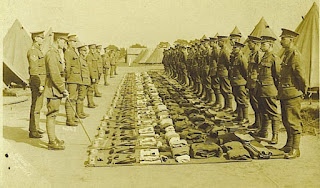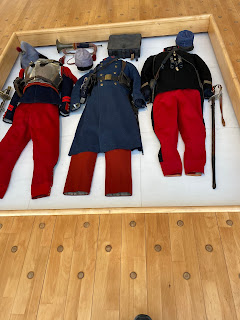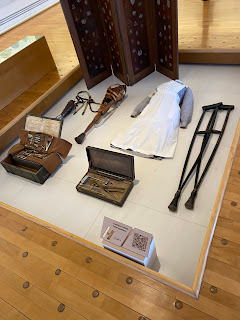A Novel of History and Conscience
At its core, August 1914 is a work of historical fiction that dramatizes the disastrous Russian campaign against Germany at the Battle of Tannenberg. Solzhenitsyn follows generals, ministers, and foot soldiers alike, weaving together their perspectives into a portrait of a society ill-prepared for war. The novel does not simply reconstruct events; it interrogates them. Why did Russia, a nation of immense size and resources, crumble so quickly? How did the incompetence of leaders and the blindness of institutions.
Solzhenitsyn’s method is almost documentary. He inserts archival material, official memos, and real speeches into his narrative, refusing to let the reader forget that these characters were not mere inventions but participants in a real historical collapse. The result is a hybrid form—part novel, part chronicle—that demands the reader confront history not as distant fact but as lived human tragedy.
The Figure of General Samsonov
One of the most haunting figures in August 1914 is General Aleksandr Samsonov, commander of the Russian Second Army. Samsonov is portrayed with compassion, not as a villain but as a man crushed by the weight of command, undone by poor communications, a divided staff, and his own hesitations. His tragic suicide after the defeat becomes emblematic of Russia’s humiliation.
Through Samsonov, Solzhenitsyn explores the tension between personal responsibility and systemic failure. Was Samsonov a poor general, or was he doomed by a larger structure of incompetence and corruption? Solzhenitsyn leaves the question open but insists that individuals matter—that decisions, mistakes, and moral weaknesses ripple outward into history.
The Theme of National Blindness
Just as In the First Circle exposes how Stalin’s Soviet Union normalized terror, August 1914 shows how Tsarist Russia normalized complacency. Bureaucrats ignored warnings, generals distrusted one another, and ministers jockeyed for power while soldiers starved at the front. The blindness was not merely strategic but moral: leaders refused to acknowledge the rot at the heart of their system.
Solzhenitsyn suggests that the seeds of 1917 were already present in 1914. The Revolution did not come from nowhere; it germinated in the failures of war, in the gap between the Russian people’s sacrifices and the state’s corruption. August 1914 is thus not only about a battle but about the unraveling of legitimacy.
Style and Structure
The novel is sprawling and demanding. Solzhenitsyn shifts rapidly from the trenches to the salons of St. Petersburg, from the thoughts of peasants to the intrigues of ministers. At times, the sheer detail can overwhelm; he includes staff orders, reports, and digressions that feel closer to history than fiction. Yet the density is deliberate. Solzhenitsyn is building an argument: history is not shaped by a few grand figures alone but by a swarm of documents, conversations, and decisions, each carrying its weight.
Amid this density, however, moments of piercing clarity emerge. A soldier’s death in a muddy field, a general’s paralyzing doubt, a politician’s cynical calculation—these scenes crystallize the human cost of institutional failure. Solzhenitsyn writes with the authority of someone who has lived through national disaster, and he insists that history must be understood not only through archives but through moral imagination.
Solzhenitsyn’s Vision
Although set decades before Stalin, August 1914 belongs to the same moral universe as In the First Circle and The Gulag Archipelago. All share the conviction that falsehood and cowardice corrode societies from within. The First World War becomes, in Solzhenitsyn’s vision, a kind of prelude to the greater horrors of the twentieth century. The blindness of 1914 paved the way for the brutality of 1917 and beyond.
What unites Solzhenitsyn’s works is the belief that truth, however painful, must be faced. Just as he stripped the illusions from the Soviet present, here he strips the myths from the Russian past. August 1914 refuses the easy consolations of patriotism or nostalgia. It shows instead a society collapsing under its own deceptions.
August 1914 is dense, sprawling, and often closer to a historical investigation than to traditional fiction. Solzhenitsyn compels the reader to see history as lived tragedy and to recognize how human weakness, bureaucratic inertia, and moral blindness can shape the destiny of nations.
If In the First Circle is a descent into Hell, August 1914 is the map of the road that led there. Both works are united by a single purpose: to bear witness, to insist on truth, and to remind us that history is not fate but the accumulation of choices. In confronting the disaster of 1914, Solzhenitsyn demands that we confront the disasters we inherit—and the ones we may yet create.
Appendix One: A Personal Turning Point
I first read August 1914 in 2006. At the time, I was long removed from my earlier service in the U.S. Army during the 1970s and 80s, nearly a quarter century gone. Yet in Solzhenitsyn’s Vorotyntsev, the thoughtful officer who searches for truth amid confusion, I found something that spoke directly to my own life. Vorotyntsev embodied courage not as bravado, but as clarity—the ability to see through illusions, to recognize responsibility, and to act even when the path was uncertain.
That encounter with the novel stayed with me. The following year, at the age of 54, I re-enlisted in the Army. In 2009, I deployed to Iraq for a year. Many people thought such a choice was reckless, even impossible after so many years away. But Solzhenitsyn had shown me in August 1914 that history, whether of nations or individuals, is not fate. It is made by choices, by the willingness to take responsibility, and by the courage to step forward even when the odds are long.
Vorotyntsev helped me believe that it was not too late, that a return to service was not only possible but meaningful. In that sense, August 1914 was not just a novel I read; it was a turning point, a book that helped set the course of my life in a new direction. Like all of Solzhenitsyn’s work, it insists on truth, responsibility, and action. For me, it became more than literature—it became a call answered in the real world.
Appendix Two: My Family in August 1914
The date that is the title of Solzhenitsyn's book has huge significance in the history of my family. In that month my paternal grandfather, Hyman Gussman, began a year-long escape from service and certain death in the Russian army. The story of his escape is here.













